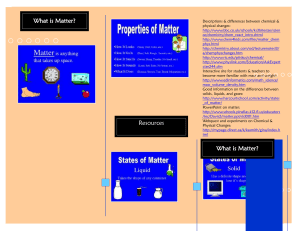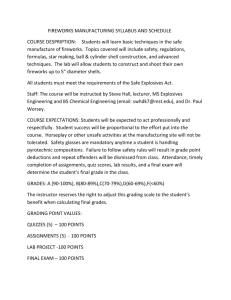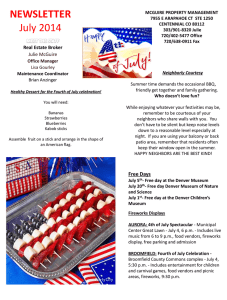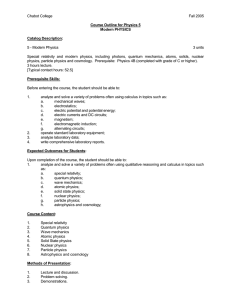June is National Home Safety Month Fireworks Safety June 2013
advertisement
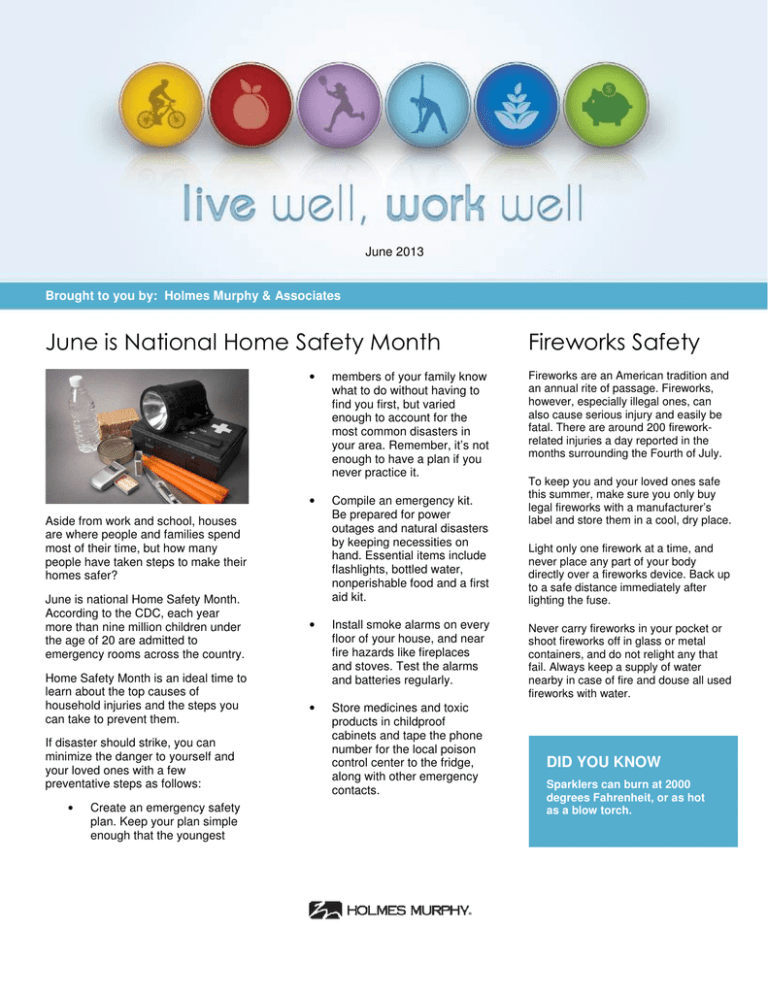
June 2013 Brought to you by: Holmes Murphy & Associates June is National Home Safety Month • • Aside from work and school, houses are where people and families spend most of their time, but how many people have taken steps to make their homes safer? June is national Home Safety Month. According to the CDC, each year more than nine million children under the age of 20 are admitted to emergency rooms across the country. Home Safety Month is an ideal time to learn about the top causes of household injuries and the steps you can take to prevent them. If disaster should strike, you can minimize the danger to yourself and your loved ones with a few preventative steps as follows: • Create an emergency safety plan. Keep your plan simple enough that the youngest members of your family know what to do without having to find you first, but varied enough to account for the most common disasters in your area. Remember, it’s not enough to have a plan if you never practice it. Compile an emergency kit. Be prepared for power outages and natural disasters by keeping necessities on hand. Essential items include flashlights, bottled water, nonperishable food and a first aid kit. • Install smoke alarms on every floor of your house, and near fire hazards like fireplaces and stoves. Test the alarms and batteries regularly. • Store medicines and toxic products in childproof cabinets and tape the phone number for the local poison control center to the fridge, along with other emergency contacts. Fireworks Safety Fireworks are an American tradition and an annual rite of passage. Fireworks, however, especially illegal ones, can also cause serious injury and easily be fatal. There are around 200 fireworkrelated injuries a day reported in the months surrounding the Fourth of July. To keep you and your loved ones safe this summer, make sure you only buy legal fireworks with a manufacturer’s label and store them in a cool, dry place. Light only one firework at a time, and never place any part of your body directly over a fireworks device. Back up to a safe distance immediately after lighting the fuse. Never carry fireworks in your pocket or shoot fireworks off in glass or metal containers, and do not relight any that fail. Always keep a supply of water nearby in case of fire and douse all used fireworks with water. DID YOU KNOW Sparklers can burn at 2000 degrees Fahrenheit, or as hot as a blow torch. Three Common Exercise Excuses and How to Beat Them We all have our reasons for not working out, yet excuses only prevent us from being happy and healthy. Here are some of the most common excuses and ways to overcome them. Remember, no one ever regrets a workout! Not motivated – Possibly the most difficult excuse to overcome, there are several ways to jumpstart motivation. One of the best is to post a goal using social media. No one likes falling short in front of others, so commit publicly to hold yourself accountable. Too tired – The first and most common reason to avoid regular exercise evaporates as soon as you push through it the first time. Multiple studies have shown regular physical activity can improve energy. Too busy – Another popular excuse, it’s an easy out to cite scheduling conflicts before shrugging off the gym, but according to the American Heart Association, only 75 minutes of weekly vigorous exercise is needed to improve your health. • Summer Savings Tips Baked Fish and Vegetables You can save money throughout the year, but the warm temperatures of summer provide a few additional benefits from the long, warm days, as well as challenges that come from staying cool. Here are some solar-powered savings tips sure to help your bank balance. While grilling is ideal for summer weather, this baked entrée is one of the healthiest and simplest recipes around, enabling you to spend more time at the beach, while looking great, too. 1. Turn off the air conditioner – Obviously, your air conditioner is no good to you if you never use it, but try to pattern AC use around the weather and time of day. For those times when it’s breezy or simply warm, a fan and open windows work just as well and for far less money. 2. Replace air conditioner filters – Dirty filters restrict airflow and can cause the system to run longer, increasing energy usage. Experts recommend changing your filters every 30 to 60 days or more frequently if you have pets or allergies. 3. Take advantage of long daylight hours – One of the best benefits of the long summer days is reducing the need for lighting in your home. 4. Cook outside – Using a stove or oven can create excess heat inside your house. Grilling is one of the best ways to take advantage of the outdoors when the weather is nice—and keeps your indoors cool 5. Let laundry dry outside. 6. Plan ahead for future projects – The end of summer is one of the best times of year for big discounts on home and garden materials. 4 white fish filets (fresh or frozen, total of 16 to 20 oz.) 16 oz. mixed vegetables (frozen) 1 small onion (diced) 1 tsp. lemon juice (or fresh lemon, sliced thin) 1 tbsp. parsley flakes (dried or freshly chopped) 4 10x12 in. sheets of aluminum foil Preheat oven to 450 degrees. Separate and place fish filets in center of each tin foil square. Combine frozen vegetables and diced onion in a bowl and mix. Spoon vegetables around filets. Sprinkle with lemon juice (or top with lemon slice) and add parsley on top. Fold and bake for 10 minutes. Yield: 4 servings. Each serving provides 360 calories, 12g total fat, 2g saturated fat, 120mg cholesterol and 130mg sodium. Source: USDA This brochure is for informational purposes only and is not intended as medical advice. For further information, please consult a medical professional. © 2013 Zywave, Inc. All rights reserved.
